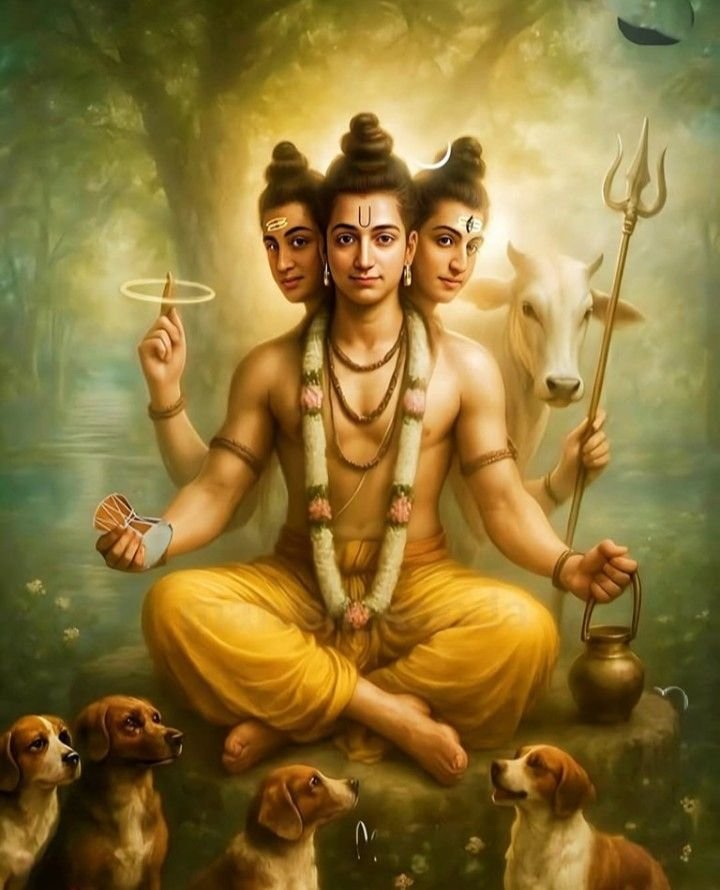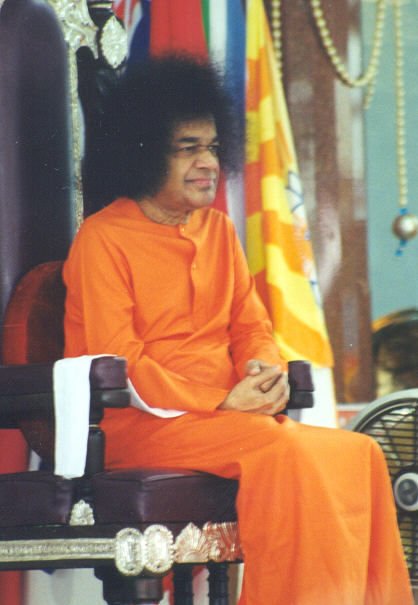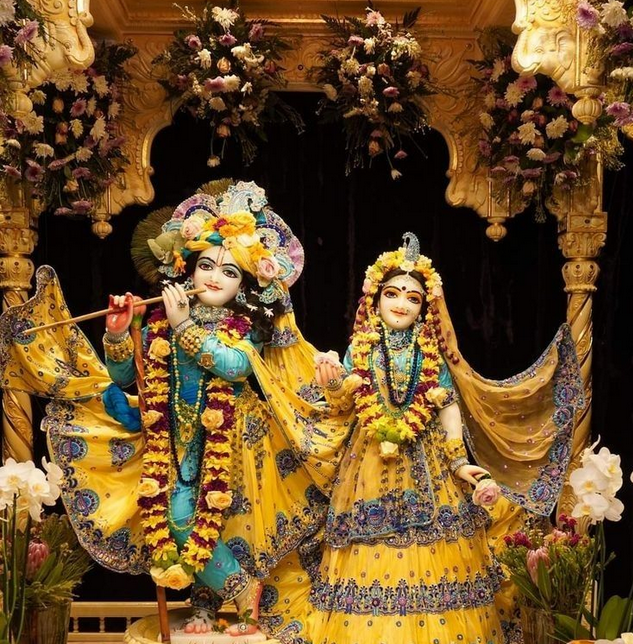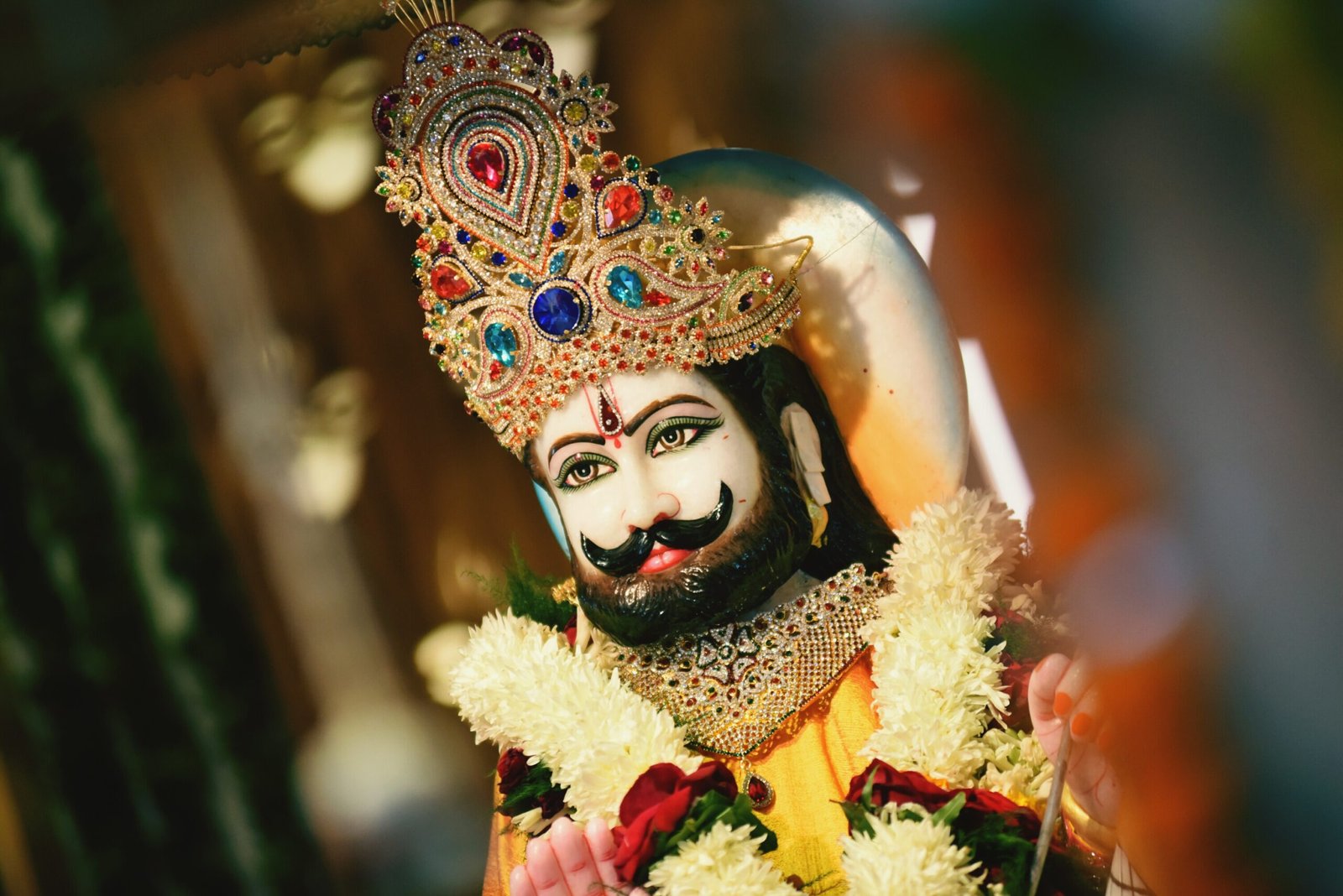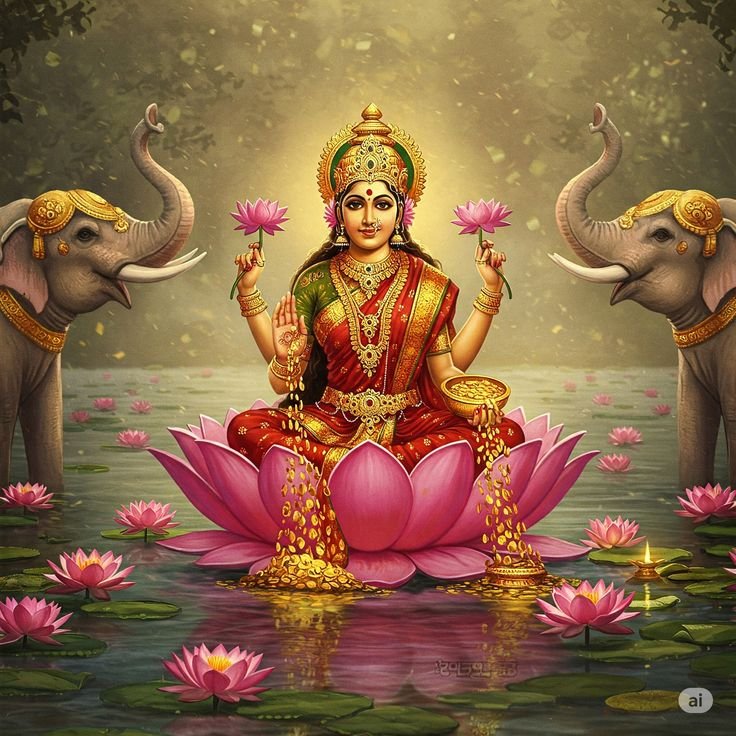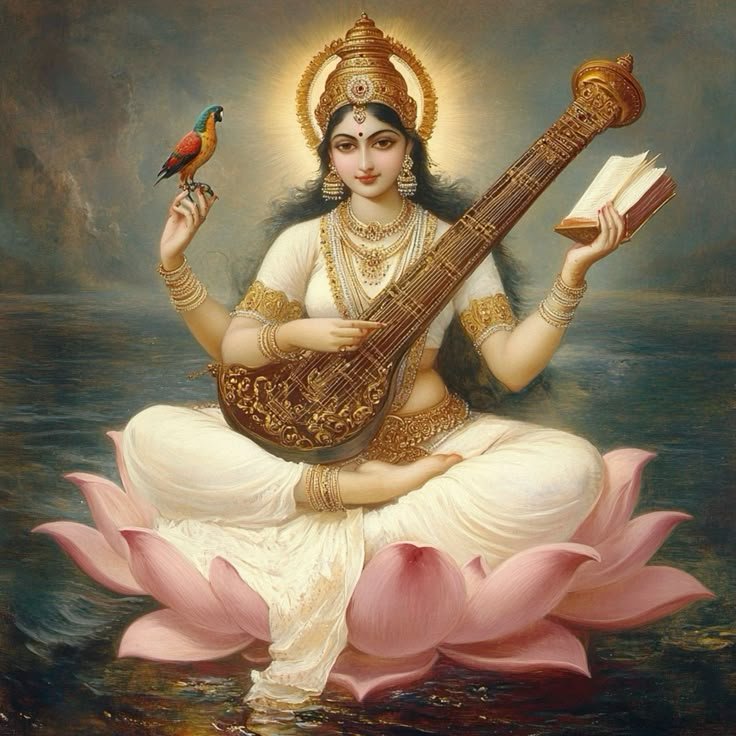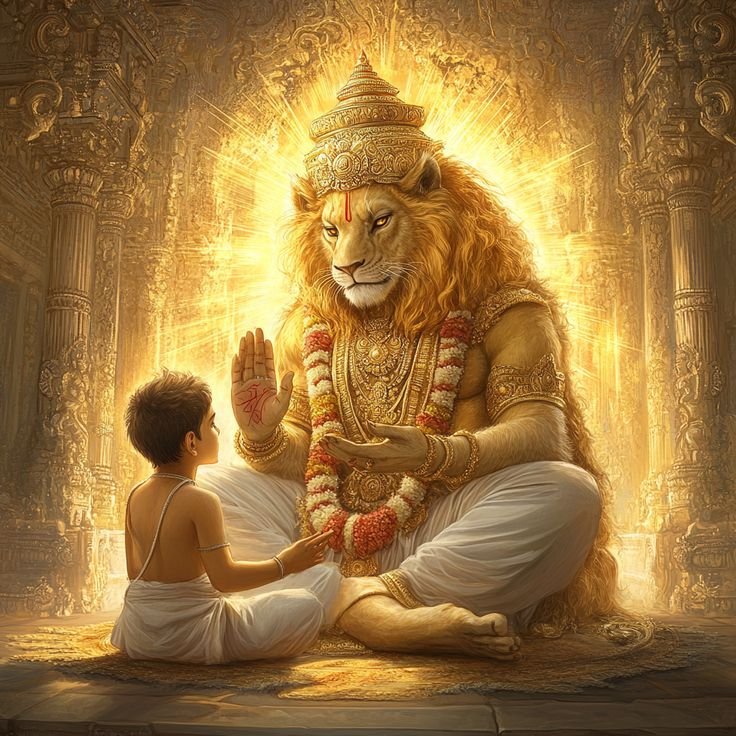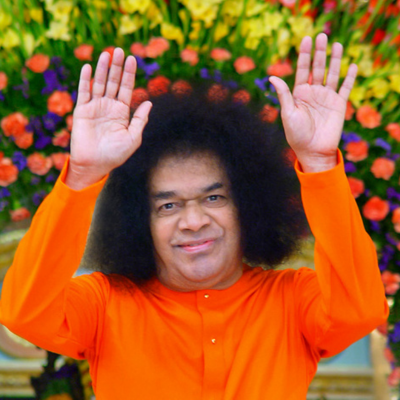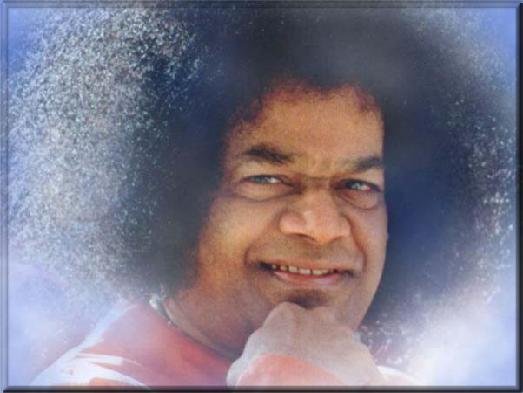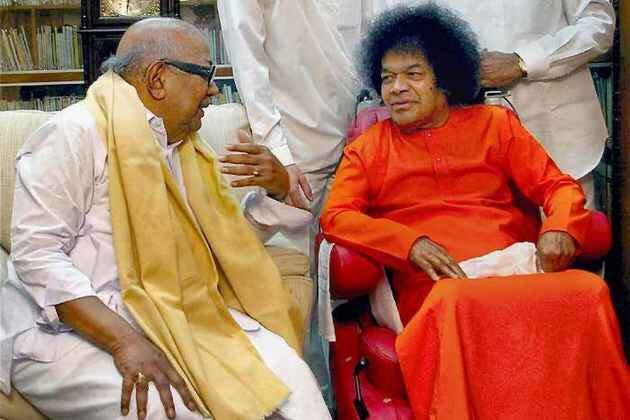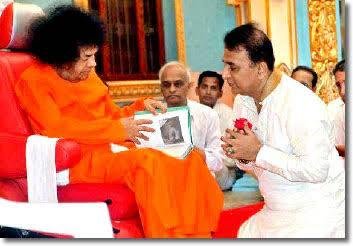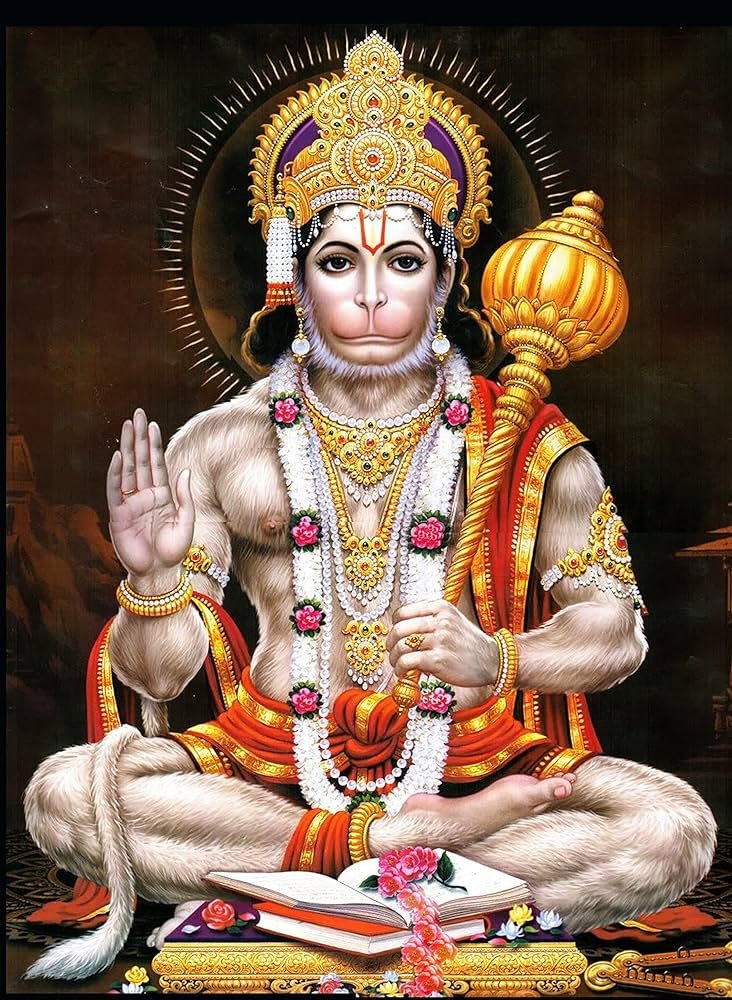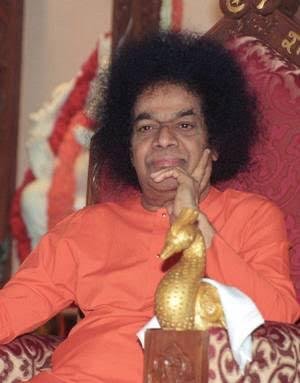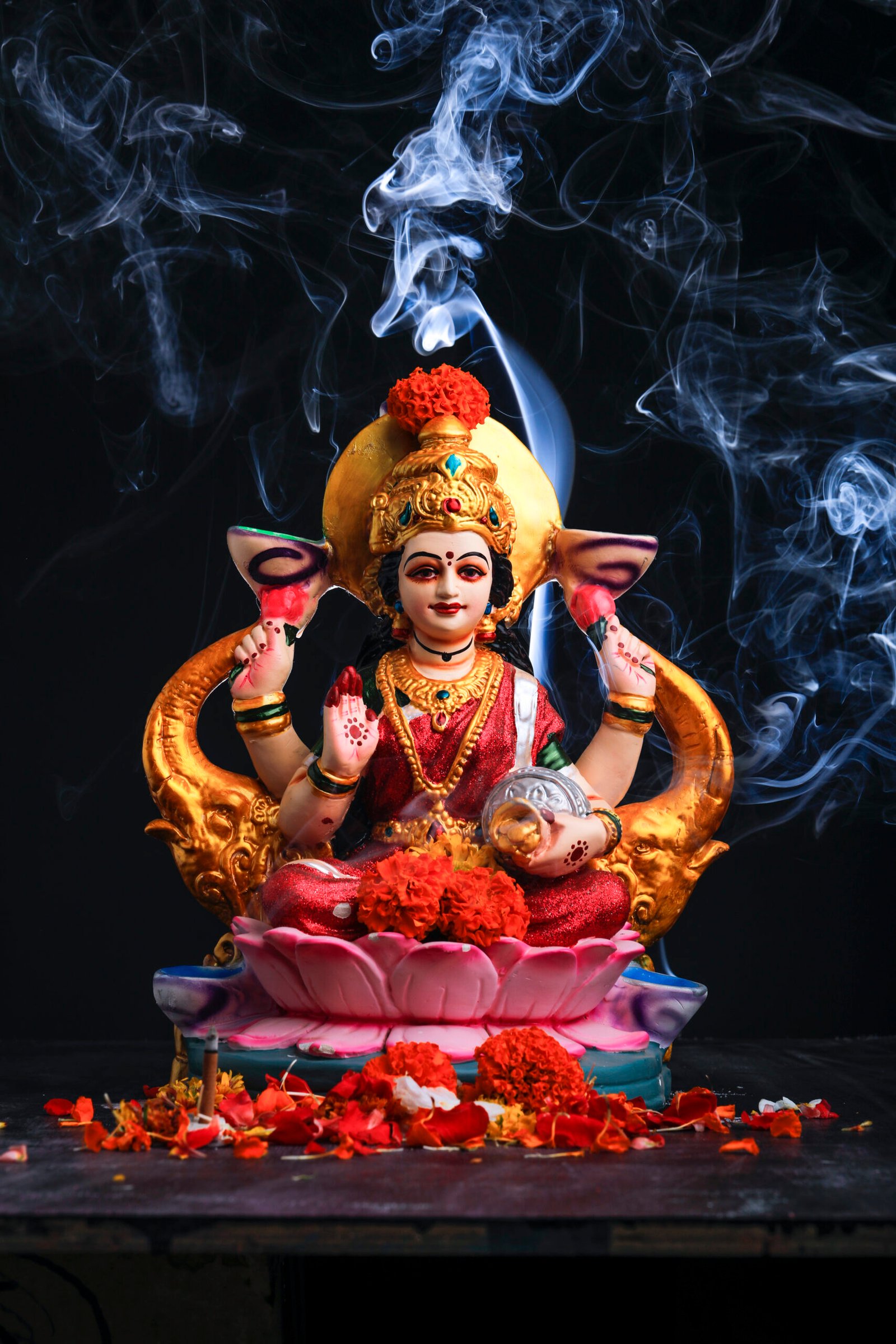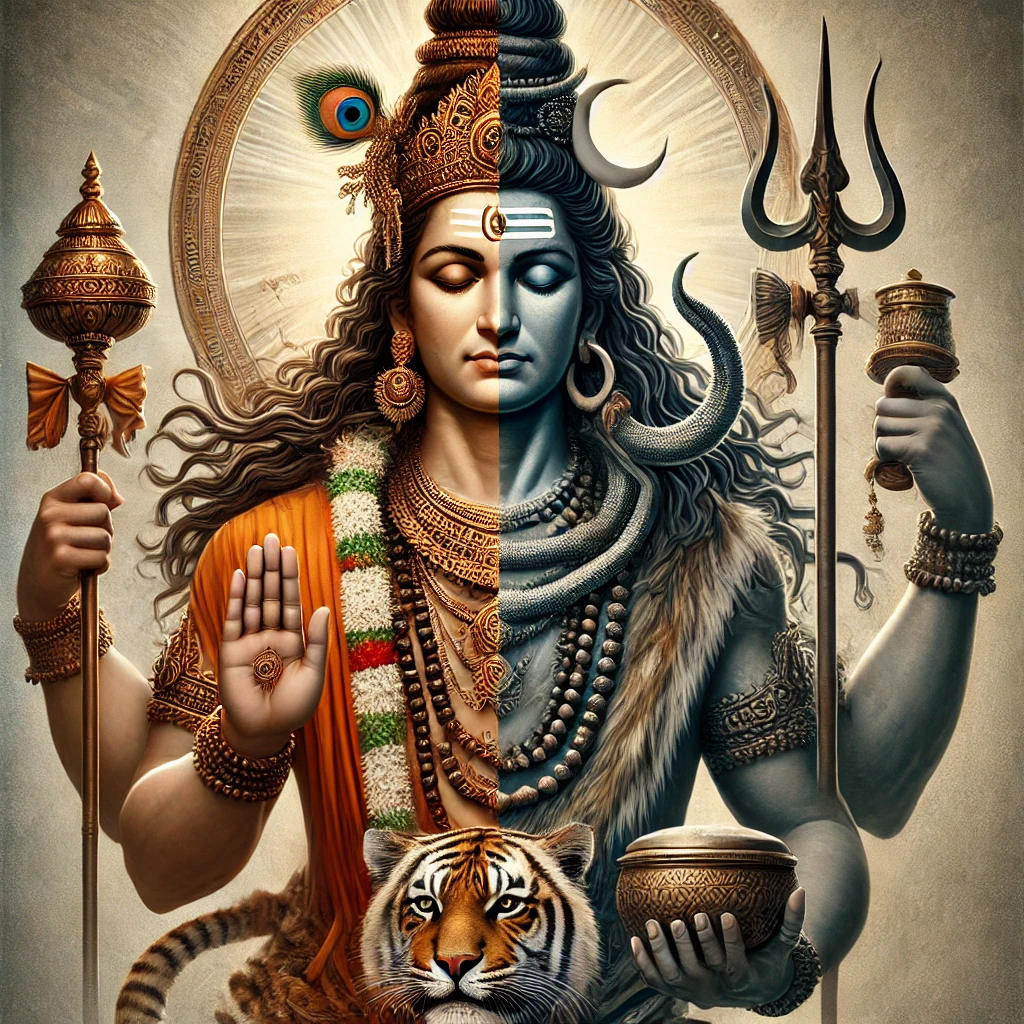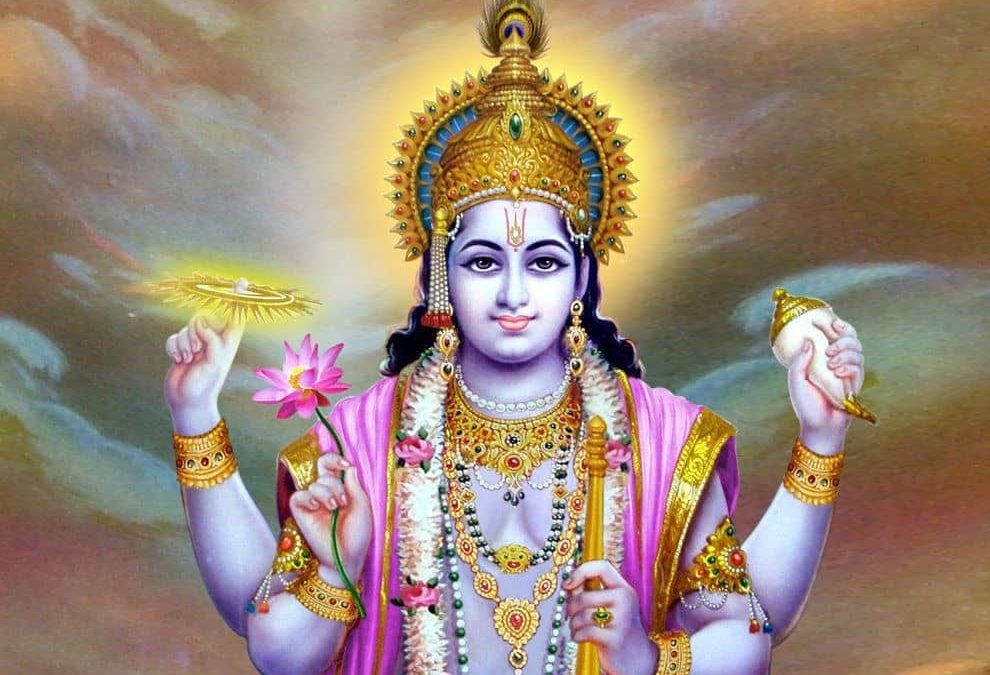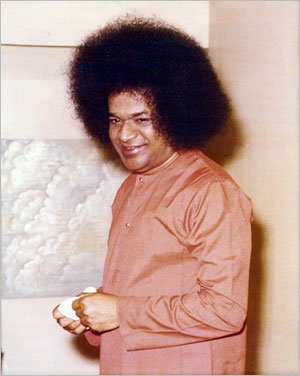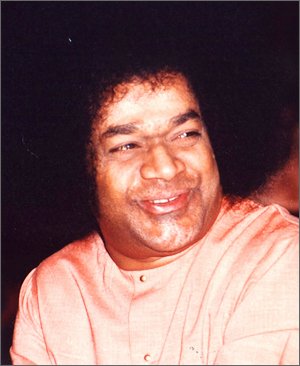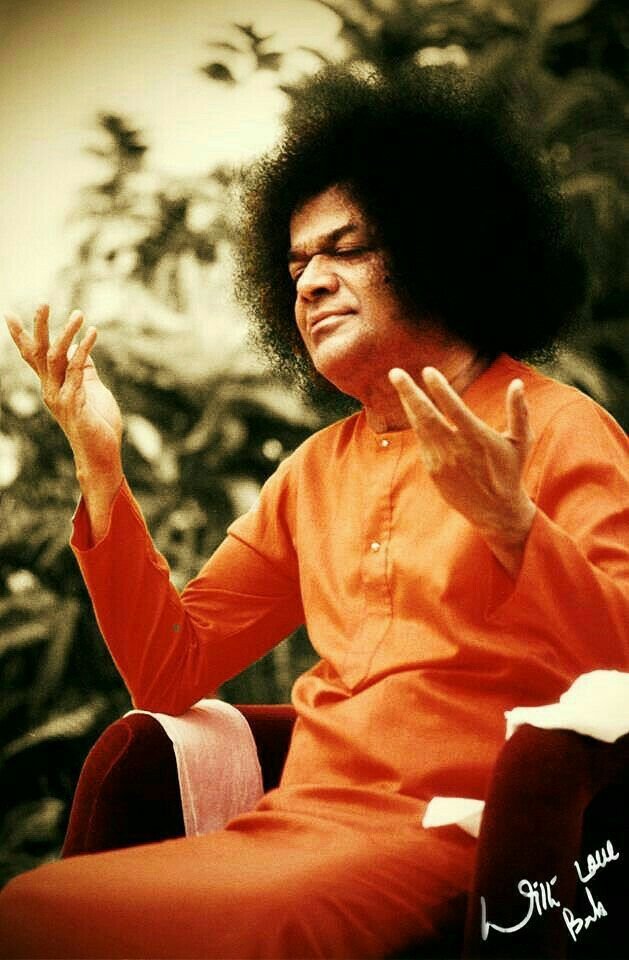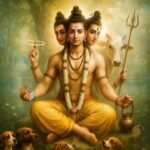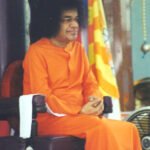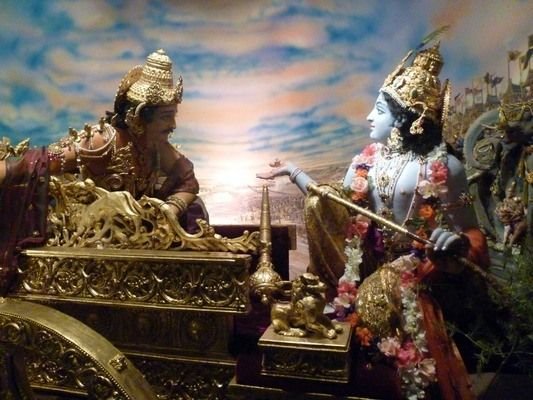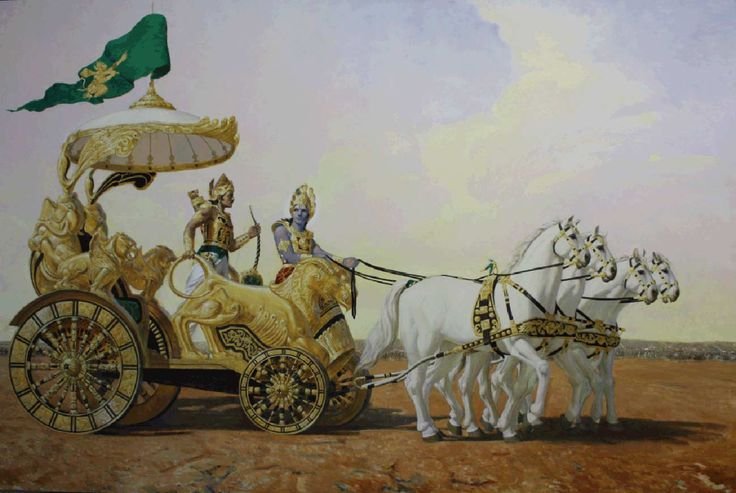Fifteen
Chapter 15
Purushottama Yoga
The fifteenth chapter of the Bhagavad Gita is “Purushottama Yoga”. In Sanskrit, Purusha means the “All-pervading God”, and Purushottam means the timeless & transcendental aspect of God. Krishna reveals that the purpose of this Transcendental knowledge of the God is to detach ourselves from the bondage of the material world and to understand Krishna as the Supreme Divine Personality, who is the eternal controller and sustainer of the world. One who understands this Ultimate Truth surrenders to Him and engages in His devotional service.
Bhagavad Gita 15.1
श्री भगवानुवाचऊर्ध्वमूलमधःशाखमश्वत्थं प्राहुरव्ययम्।छन्दांसि यस्य पर्णानि यस्तं वेद स वेदवित्।।15.1।।
śhrī-bhagavān uvācha ūrdhva-mūlam adhaḥ-śhākham aśhvatthaṁ prāhur avyayam chhandānsi yasya parṇāni yas taṁ veda sa veda-vit
śhrī-bhagavān uvācha—the Supreme Divine Personality said; ūrdhva-mūlam—with roots above; adhaḥ—downward; śhākham—branches; aśhvattham—the sacred fig tree; prāhuḥ—they speak; avyayam—eternal; chhandānsi—Vedic mantras; yasya—of which; parṇāni—leaves; yaḥ—who; tam—that; veda—knows; saḥ—he; veda-vit—the knower of the Vedas
Translation
The Blessed Lord said: They (the wise) speak of the indestructible peepul tree, with its roots above and branches below, whose leaves are the meters or hymns; he who knows it is a knower of the Vedas.
Commentary
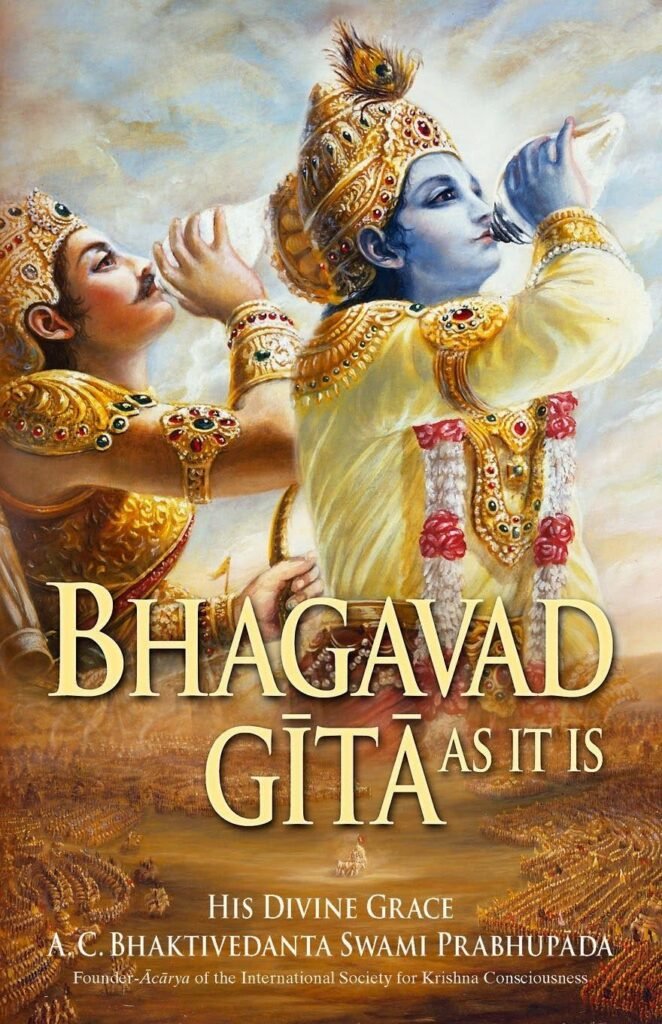
Bhagavad Gita 15.2
अधश्चोर्ध्वं प्रसृतास्तस्य शाखा गुणप्रवृद्धा विषयप्रवालाः।अधश्च मूलान्यनुसन्ततानि कर्मानुबन्धीनि मनुष्यलोके।।15.2।।
adhaśh chordhvaṁ prasṛitās tasya śhākhā guṇa-pravṛiddhā viṣhaya-pravālāḥ adhaśh cha mūlāny anusantatāni karmānubandhīni manuṣhya-loke
adhaḥ—downward; cha—and; ūrdhvam—upward; prasṛitāḥ—extended; tasya—its; śhākhāḥ—branches; guṇa—modes of material nature; pravṛiddhāḥ—nourished; viṣhaya—objects of the senses; pravālāḥ—buds; adhaḥ—downward; cha—and; mūlāni—roots; anusantatāni—keep growing; karma—actions; anubandhīni—bound; manuṣhya-loke—in the world of humans
Translation
Its branches spread below and above, nourished by the Gunas; its buds are sense-objects, and its roots stretch forth below in the world of men, originating action.
Commentary
15.2 अधः below? च and? ऊर्ध्वम् above? प्रसृताः spread? तस्य its? शाखाः branches? गुणप्रवृद्धाः nourished by the Gunas? विषयप्रवालाः senseobjects (are) its buds? अधः below? च and? मूलानि the roots? अनुसन्ततानि are stretched forth? कर्मानुबन्धीनि originating action? मनुष्यलोके in the world of men.Commentary The countless objects? large and small? which life needs are all products of the five elements through the activity of the alities. This tree of Samsara is nourished by the three alities of Nature. The senseobjects are its buds and the roots which grow downwards are the bonds of Karma for those who lead a life of passion and attachment in this world? who are under the sway of likes and dislikes. The sprouts of this marvellous tree are the charming objects of the senses with their characteristics of sound? touch? colour? taste and smell. The roots? the Karmic tendencies from the past lives? grow downwards to generate the bonds of Karma in the world of men. These roots strengthen the bondage by further actions.The primal root is ignorance from which arises the eightfold Nature — the five elements? mind? intellect and egoism. From the stem of the tree spring four branches called Svedaja? Andaja?
,Jarayuja and Udbhijja. Eightyfour lakhs (eight million and four hundred thousand) of species came into being.One branch shoots straight upwards. This is the branch of Dharma which yields the fruit of enjoyment in heaven. Another branch is the branch of dispassion which yields the fruit of Selfrealisation. The sun? the planets? the manes and the sages have also come out of this wonderful tree. Above them are the branches of the worlds of Indra and the gods. Still higher are those of the sages and the men of austerities and penance. Still higher is the Satyaloka where Hiranyagarbha dwells.From man down to the immovable objects below and from him up to the realm of the Creator above? whatever regions are attained in accordance with the nature of knowledge or action? they are the ramifying branches of the tree of Samsara. They are nurtured and fattened by the three Gunas which form their material base.The senseobjects such as sound? touch? colour? taste and smell represent the buds that sprout from the branches of the physical bodies which are the products of actions.The highest root of this wondeful tree is Brahman. The secondary roots are the latent impressions (Samskaras) of likes and dislikes?
which spread in this world of men and impel them to perform virtuus and vicious actions and bind them fast to actions.Now listen to the way by which this tree can be cut off. Only he who thus cuts his bondage to this tree of Samsara can be happy even in this world. He has the highest wisdom because he stands as a spectator of this tree and knows it as it is? without being tied to it.
Bhagavad Gita 15.3
न रूपमस्येह तथोपलभ्यते नान्तो न चादिर्न च संप्रतिष्ठा।अश्वत्थमेनं सुविरूढमूल मसङ्गशस्त्रेण दृढेन छित्त्वा।।15.3।।
na rūpam asyeha tathopalabhyate nānto na chādir na cha sampratiṣhṭhā aśhvattham enaṁ su-virūḍha-mūlam asaṅga-śhastreṇa dṛiḍhena chhittvā
na—not; rūpam—form; asya—of this; iha—in this world; tathā—as such; upalabhyate—is perceived; na—neither; antaḥ—end; na—nor; cha—also; ādiḥ—beginning; na—never; cha—also; sampratiṣhṭhā—the basis; aśhvattham—sacred fig tree; enam—this; su-virūḍha-mūlam—deep-rooted; asaṅga-śhastreṇa—by the axe of detachment; dṛiḍhena—strong; chhittvā—having cut down;
Translation
Its form is not perceived here as such, nor its end, origin, foundation, or resting place; having cut asunder this firmly rooted peepul tree with the strong axe of non-attachment.
Commentary
15.3 न not? रूपम् form? अस्य its? इह here? तथा as such? उपलभ्यते is perceived? न not? अन्तः (its) end? न not? च and? आदिः (its) origin? न not? च and? संप्रतिष्ठा foundation or resting place? अश्वत्थम् Asvattha? एनम् this? सुविरूढमूलम् firmrooted? असङ्गशस्त्रेण with the axe of nonattachment? दृढेन strong? छित्त्वा having cut asunder.Commentary The idea is continued in the next verse.So long as oneis under the sway of ignorance? he cannot understand the form of this tree? its end? origin and foundation (middle). O Arjuna Thou mayest perhaps consider that such a huge tree cannot be uprooted by any means whatever. It is not so. However firmly rooted it may be? it can be cut by the powerful axe of nnattachment or dispassion within the twinkling of an eye.After cutting this tree you will have tolook within? meditate on the Self and behold the Supreme.Tatha As such As described above. Is it necessary to pull down castles in the air or to break the horns of a hare or to pluck a flower growing in the sky or to get butter from the milk of a tortoise or oil from stone Similarly? O Arjuna? there is no reality in this tree. Therefore why should you entertain any fear as to whether it may be uprootedor not Its form as such is not perceived by anybody here it is like a dream or a mirage or an imaginary city in the sky formed by the clouds or caused by a juggler. It appears and disappears. This tree has DrishtaNashtaSvarupa like the mirage. That object which is destroyed when one beholds it is DrishtaNashta. Nobody has perceived the end? the origin or the foundation of this illusory tree.
can say that it has arisen from such and such a place or point.Samsara or the peepul tree is inveterately deeprooted. You will have to struggle hard to uproot it with its seed or the selfreproducing deep root.Asanga Dispassion? freedom from attachment to children? wealth and the world.Dridhena Strong. You will have to cut the tree with a strong axe which is sharpened again and again on the whetstone.
the practice of discrimination. Further your mind should be turned towards the Supreme Being with the strong determination that you can attain eternal bliss only in Him and that He is the ony Reality.The desire for sensual pleasure is Sanga. Its opposite (dispassion) is Asanga. Renunciation of the three kinds of Eshanas (desires)? viz.? children? wealth and the world (PutraVittaLokeshana) is Asanga.
Just as the axe cuts the tree? so also dispassion cuts this tree of Samsara. Hence dispassion is termed an axe. Cutting the tree of Samsara is annihilation of egoism? ignorance? latent tendencies? and renunciation of the fruits of all actions? through the practice of dispassion? control of the mind and the senses? etc. (Cf.VII.14)
Bhagavad Gita 15.4
ततः पदं तत्परिमार्गितव्य यस्मिन्गता न निवर्तन्ति भूयः।तमेव चाद्यं पुरुषं प्रपद्ये यतः प्रवृत्तिः प्रसृता पुराणी।।15.4।।
tataḥ padaṁ tat parimārgitavyaṁ yasmin gatā na nivartanti bhūyaḥ tam eva chādyaṁ puruṣhaṁ prapadye yataḥ pravṛittiḥ prasṛitā purāṇī
tataḥ—then; padam—place; tat—that; parimārgitavyam—one must search out; yasmin—where; gatāḥ—having gone; na—not; nivartanti—return; bhūyaḥ—again; tam—to him; eva—certainly; cha—and; ādyam—original; puruṣham—the Supreme Lord; prapadye—take refuge; yataḥ—whence; pravṛittiḥ—the activity; prasṛitā—streamed forth; purāṇi—very old
Translation
Then, that goal should be sought for, to which, having gone, none returns again. I seek refuge in that Primeval Purusha, from whence streamed forth the ancient activity or energy.
Commentary
15.4 ततः then? पदम् goal? तत् That? परिमार्गितव्यम् should be sought for? यस्मिन् whither? गताः gone? न not? निवर्तन्ति return? भूयः again? तम् that? एव even? च and? आद्यम् primeval? पुरुषम् Purusha? प्रपद्ये I seek refuge? यतः whence? प्रवृत्तिः activity or energy? प्रसृता streamed forth? पुराणी ancient.Commentary That which fills the whole world with the form of ExistenceKnowledgeBliss is Purusha.
Or? that which sleeps in this Puri (city) of the body is the Purusha.Singleminded devotion which consists of ceaselessly thinking of or meditating on the Supreme Being is the sure means of attaining Selfrealisation. Taking sole refuge in the Primeval Purusha is the means to know or realise that supreme goal goind whither the wise do not return again to this world of death.The aspirant should know the abode of Vishnu. He should struggle hard to reach it. He should seek it by taking refuge in the Primeval Purusha. If he reaches this immortal abode of Vishnu or the imperishable Brahmic seat of ineffable splendour and glory he will never return to this mortal world.The Primeval Purusha or the pure? Supreme Being Who is ExistenceKnowledgeBliss Absolute is the goal or the supreme abode or the abode of Vishnu. Just as illusory objects like elephants? horses? etc.? come forth through the jugglery of the magician? so also this ancient energy or the original divine power or emanation of this tree or illusory Samsara has streamed forth from that Primeval Purusha.What sort of persons reach that goal eternal Listen.
Bhagavad Gita 15.5
निर्मानमोहा जितसङ्गदोषा अध्यात्मनित्या विनिवृत्तकामाः।द्वन्द्वैर्विमुक्ताः सुखदुःखसंज्ञै र्गच्छन्त्यमूढाः पदमव्ययं तत्।।15.5।।
nirmāna-mohā jita-saṅga-doṣhā adhyātma-nityā vinivṛitta-kāmāḥ dvandvair vimuktāḥ sukha-duḥkha-sanjñair gachchhanty amūḍhāḥ padam avyayaṁ tat
niḥ—free from; māna—vanity; mohāḥ—delusion; jita—having overcome; saṅga—attachment; doṣhāḥ—evils; adhyātma-nityāḥ—dwelling constantly in the self and God; vinivṛitta—freed from; kāmāḥ—desire to enjoy senses; dvandvaiḥ—from the dualities; vimuktāḥ—liberated; sukha-duḥkha—pleasure and pain; saṁjñaiḥ—known as; gachchhanti—attain; amūḍhāḥ—unbewildered; padam—abode; avyayam—eternal; tat—that
Translation
Free from pride and delusion, victorious over the evil of attachment, dwelling constantly in the Self, their desires having completely turned away, freed from the pairs of opposites known as pleasure and pain, they, the undeluded, reach the eternal goal.
Commentary
15.5 निर्मानमोहाः free from pride and delusion? जितसङ्गदोषाः victorious over the evil of attachment? अध्यात्मनित्याः dwelling constantly in the Self? विनिवृत्तकामाः (their) desires having completely turned away? द्वन्द्वैः from the pairs of opposites? विमुक्ताः freed? सुखदुःखसंज्ञैः known as pleasure and pain? गच्छन्ति reach? अमूढाः the undeluded? पदम् goal? अव्ययम् eternal? तत् That.Commentary Wherever there is pride there is stiff egoism. Absence of discrimination between the Real and the unreal is Moha. Perversion is Moha. Infatuation is Moha. Those who are free from likes and dislikes even when they attain pleasant or unpleasant objects have triumphed over the,evil of attachment. Kartritva Abhimana or the idea I am the doer is Sanga. Likes and dislikes are the Doshas or the evils. Heat and cold? pleasure and pain? honour and dishonour? censure and praise? etc.? are the pairs of opposites. Only those who have destroyed ignorance and who have attained the knowledge of the Self reach the eternal goal.Adhyatmanityah Ever engaged in the contemplation of the nature of Brahman or the Supreme Being.Vinivrittakamah All the desires vanish in toto without leaving any trace or taint behind. They who have reached this stage become Yatis or Sannyasins. In the fire of wisdom all desires are burnt. As the birds fly away from a tree which has caught fire? so do desires go away from him.Tat That (the goal) described above.
Bhagavad Gita 15.6
न तद्भासयते सूर्यो न शशाङ्को न पावकः।यद्गत्वा न निवर्तन्ते तद्धाम परमं मम।।15.6।।
na tad bhāsayate sūryo na śhaśhāṅko na pāvakaḥ yad gatvā na nivartante tad dhāma paramaṁ mama
na—neither; tat—that; bhāsayate—illumine; sūryaḥ—the sun; na—nor; śhaśhāṅkaḥ—the moon; na—nor; pāvakaḥ—fire; yat—where; gatvā—having gone; na—never; nivartante—they return; tat—that; dhāma—abode; paramam—supreme; mama—mine
Translation
Neither does the sun illuminate there, nor the moon, nor the fire; having gone there, they do not return; that is My supreme abode.
Commentary
15.6 न not? तत् that? भासयते illumines? सूर्यः the sun? न not? शशाङ्कः the moon? न not? पावकः fire? यत् to which? गत्वा having gone? न not? निवर्तन्ते (they) return? तत् that? धाम Abode? परमम् Supreme? मम My.Commentary That supreme abode is selfillumined for Brahman is selfluminous. It existed before the sun? the moon and the fire came into existence during creation. It remains even after they dissolve into the Unmanifested during the dissolution of the world.This verse is taken from the Kathopanishad The sun does not shine there? nor do the moon and the stars? nor does this lightning shine and much less this fire. When It shines? everything shines after It? by Its light? all these shine (Chap.II?5.15). The same idea occurs in the Svetasvatara Upanishad (6.14) and the Mundaka Upanishad (II.2.10).
The sun? the moon? etc.? derive their light from Para Brahman. Nothing else is needed for illuminating the Supreme Being because It is selfluminous.Dhama paramam Supreme abode or superexcellent seat or Para Brahman.Though the sun is endowed with the power of illumining all? it cannot illumine the Supreme Being.यत् धाम वैष्णवं पदं गत्वा प्राप्य न निवर्तन्ते यत् च सूर्यादिभिः न भासयते तत् धाम पदं परमं मम विष्णोः।That abode? to which having gone? none returns? and which the sun? moon? stars? lightning and fire do not illumine? is the highest abode of Vishnu.(Cf.VIII.21)

Bhagavad Gita 15.7
ममैवांशो जीवलोके जीवभूतः सनातनः।मनःषष्ठानीन्द्रियाणि प्रकृतिस्थानि कर्षति।।15.7।।
mamaivānśho jīva-loke jīva-bhūtaḥ sanātanaḥ manaḥ-ṣhaṣhṭhānīndriyāṇi prakṛiti-sthāni karṣhati
mama—my; eva—only; anśhaḥ—fragmental part; jīva-loke—in the material world; jīva-bhūtaḥ—the embodied souls; sanātanaḥ—eternal; manaḥ—with the mind; ṣhaṣhṭhāni—the six; indriyāṇi—senses; prakṛiti-sthāni—bound by material nature; karṣhati—struggling
Translation
An eternal portion of Myself having become a living soul in the world of life, draws to itself the five senses, with the mind as the sixth, abiding in Nature.
Commentary
15.7 मम My? एव even? अंशः portion? जीवलोके in the world of life? जीवभूतः having become a soul? सनातनः eternal? मनःषष्ठानि with mind as the sixth? इन्द्रियाणि the (five) Indriyas? प्रकृतिस्थानि abiding in Prakriti? कर्षति draws (to itself).Commentary Now the Lord explains how the individual soul comes into being. The individual soul is a ray of the Lord. A ray of the Supreme Being enters Nature? drawsto itself the five senses and the mind and becomes an embodied soul (Jiva) by assuming a body. Here is a description of how the subtle body or LingaSariria enters the gross body.Although the sun is reflected in water? it is not in any way tainted. When a crystal comes in,contact with a red cloth or red flower? it seems to be red but it is really not so. Even so the Supreme Beings is not in any waytainted by the actions of the individual soul.Ignorance is the limiting adjunct of the individual soul. On account of the limitation caused by this ignorance the soul experiences that it is the doer and the enjoyer. In essence the individual soul is identical with the Supreme Being or Brahman. When ignorance? the limiting adjunct or principle? is destroyed? the individual soul (Jiva) realises it identitywith the Supreme Being (Brahman).Just as the ether in the pot becomes one with the universal ether when the limiting adjunct? the pot? is broken? so also the individual soul becomes one with Brahman when the limiting adjunct? ignorance? is annihilated. Just as there is no return of the potether after it has become one with the universal ether when the pot is destroyed? so also there is no return other individual soul after the limiting adjunct (the Antahkarana? i.e.? mind and the other inner instruments) is destroyed. It becomes one with Brahman.Pratibimba (reflection) is only a portion of the Bimba (object). The reflected sun is only a portion of the real sun (the rays of the sun). When the water is removed the reflected sun goes back to the original sun? as it were. It does not return tothe water again. Even so? when ignorance or the mind is annihilated? the Jiva (individual soul) which is a reflection of Brahman in ignorance is absorbed in the Bimba Brahman. It does not return to this world of birth and death.The individual soul is only an imaginary or fictitious portion of Brahman. It is not a real portion. For the Supreme Being is indivisible. It has no parts. If It has parts?
It would be liable to destruction when the parts are disjointed or removed.The senses abide in Nature? in their respective seats such as ear? skin? tongue? eye and nose. A Sannyasi living in the caves of the Himalayas dreams that he is a married man and moves about hither and thither to get a job for his livelihood. Even so? the individual soul forgets its real divine nature? mistakes the impure?perishable body for the pure? immortal Self and imagines that it is the real actor and enjoyer by identifying itself with the body. It says? I am the Karta. I am the Bhokta. I am a soul bound by Samsara. I am happy. I am miserable. It becomes finite.In essence the Jiva is identical with Brahman. The difference is on account of delusion or imagination or superimposition.
The illusion of difference is due to the limiting adjunct or principle (the mind) even as the illusion that the ether in the pot is different from the universal ether is caused by the limiting adjunct? viz.? the pot. Jivabrahmabhedabhranti (the delusion of the distinctior between the individual soul and the Supreme Being) is removed when the limiting adjunct (mind) is annihilated. In deep sleep the mind rests in a subtle state along with all the Samskaras (impressions) and Vasanas (tendencies) in its cause (primordial ignorance). Again it comes back from this state of ignorance when you return to the waking state. If the cause (ignorance) is destroyed by the knowledge of the Self? its effect (mind) is also annihilated.Just as the tortoise stretches out its head and feet which were in a state of Laya (absorption) in its body? so also the individual soul strecthces out its mind and senses which were in a state of absorption in primordial ignorance in deep sleep? to enjoy the sensual objects in the waking state.A ray of the Supreme Being enters Nature? draws to itself the five senses and the mind In this verse the formation of the astral body (LingaSarira or Sukshmasarira) is described.The Sruti declaresस एष इह प्रविष्टः आनखाग्रेभ्यः तत् सृष्ट्वा तदेवानुप्राविशत्।।That Supreme Being Itself? having created this aggregate of the body from the head to the toe? entered this body in the form of the Jiva.According to Vedanta there are nineteen principles? viz.? the five organs of knowledge? the five organs of action? the five vital airs (Prana? Apana? Vyana? Samana and Udana)? the mind? intellect? Chitta (the subconscious or the unconscious mind)? and egoism. We will have to conclude that the words the five senses and the mind point to the collection of the remaining thirteen principles also.Amsa This does not mean here a particle or portion which has been cut out. It is like the Amsar of the ether in the pot the ether is not cut out but still remains the whole ether. (Cf.XIV.3)
Bhagavad Gita 15.8
शरीरं यदवाप्नोति यच्चाप्युत्क्रामतीश्वरः।गृहीत्वैतानि संयाति वायुर्गन्धानिवाशयात्।।15.8।।
śharīraṁ yad avāpnoti yach chāpy utkrāmatīśhvaraḥ gṛihītvaitāni sanyāti vāyur gandhān ivāśhayāt
śharīram—the body; yat—as; avāpnoti—carries; yat—as; cha api—also; utkrāmati—leaves; īśhvaraḥ—the Lord of the material body, the embodied soul; gṛihītvā—taking; etāni—these; sanyāti—goes away; vāyuḥ—the air; gandhān—fragrance; iva—like; āśhayāt—from seats
Translation
When the Lord, as the individual soul, obtains a body and when He leaves it, He takes these with Him, just as the wind takes the scents from their seats (flowers, etc.).
Commentary
15.8 शरीरम् a body? यत् when? अवाप्नोति obtains? यत् when? च and? अपि also? उत्क्रामति leaves? ईश्वरः the Lord? गृहीत्वा taking? एतानि these? संयाति goes? वायुः the wind? गन्धान् the scents? इव as? आशयात् from (their) seats (the flowers).Commentary Here is a description of how the subtle body leaves the gross body.When the Jiva? the Lord of the aggregate of the body and the rest takes up this body he brings in with him the mind and the senses when he leavs the body at its dissolution he takes with him the senses and the mind? just as the wind carries with it the fragrance from the flowers. Wherever he goes and whatever form he assumes he again operates through these senses and the mind.Lord Jiva? the Lord of the aggregate of the body and the rest.The Self appears to be an agent or an enjoyer only when he possesses or assumes a body.
Bhagavad Gita 15.9
श्रोत्रं चक्षुः स्पर्शनं च रसनं घ्राणमेव च।अधिष्ठाय मनश्चायं विषयानुपसेवते।।15.9।।
śhrotraṁ chakṣhuḥ sparśhanaṁ cha rasanaṁ ghrāṇam eva cha adhiṣhṭhāya manaśh chāyaṁ viṣhayān upasevate
śhrotram—ears; chakṣhuḥ—eyes; sparśhanam—the sense of touch; cha—and; rasanam—tongue; ghrāṇam—nose; eva—also; cha—and; adhiṣhṭhāya—grouped around; manaḥ—mind; cha—also; ayam—they; viṣhayān—sense objects; upasevate—savors
Translation
Presiding over the ears, eyes, touch, taste, smell, and mind, it enjoys the objects of the senses.
Commentary
15.9 श्रोत्रम् the ear? चक्षुः the eye? स्पर्शनम् the (organ of) touch? च and? रसनम् the (organ of) taste? घ्राणम् the (organ of) smell? एव even? च and? अधिष्ठाय presiding over? मनः the mind? च and? अयम् this (soul)? विषयान् objects of the senses? उपसेवते enjoys.Commentary Here is a description of how the subtle body remaining in the gross body enjoys the objects of the senses.The individual soul[ uses the mind along with each sense separately and enjoys or experiences the objects of the senses such as sound? touch? colour (form)? taste and smell.It sits on the marvellous car of its mind? passes through the gateway of the ear in the twinkling of an eye and enjoys the various kinds of music of this world. It holds the reins of the nerves of sensation? enters the domain of touch through the portal of the skin and enjoys the diverse kinds of soft objects. It roams about in the hills of beautiful forms and enjoys them through the windows of his eyes. It enters the cave of taste by the avenue of the tongue and enjoyes dainties? palatable dishes and refreshing beverages. It enters the forest of scents through the door of the nose and enjoys them to its hearts content.It makes its abode in the ears? the eyes? the skin? the tongue and the nose? as also in the mind and enjoys the objects of the senses. It gains experiences of the outer world through the mind?,intellect? subconscious mind? egoism? the ten senses and the five vital airs.Ghranameva cha The word cha (and) indicates that we shall have to include the five organs of action? and also the fourfold inner instrument (mind? intellect? subconscious mind and egoism). In the Katha Upanishad it is said आत्मेन्द्रियमनोयुक्तं भोक्तेत्याहुर्मनीषिणः।।The Self? the senses and the mind united? the wise call the enjoyer.
Bhagavad Gita 15.10
उत्क्रामन्तं स्थितं वापि भुञ्जानं वा गुणान्वितम्।विमूढा नानुपश्यन्ति पश्यन्ति ज्ञानचक्षुषः।।15.10।।
utkrāmantaṁ sthitaṁ vāpi bhuñjānaṁ vā guṇānvitam vimūḍhā nānupaśhyanti paśhyanti jñāna-chakṣhuṣhaḥ
utkrāmantam—departing; sthitam—residing; vā api—or even; bhuñjānam—enjoys; vā—or; guṇa-anvitam—under the spell of the modes of material nature; vimūḍhāḥ—the ignorant; na—not; anupaśhyanti—percieve; paśhyanti—behold; jñāna-chakṣhuṣhaḥ—those who possess the eyes of knowledge
Translation
The deluded do not see Him who departs, stays, and enjoys; but those who possess the eye of knowledge behold Him.
Commentary
15.10 उत्क्रामन्तम् departing? स्थितम् staying? वा or? अपि also? भुञ्जानम् enjoying? वा or? गुणान्वितम् united with the Gunas? विमूढाः the deluded? न not? अनुपश्यन्ति do see (Him)? पश्यन्ति behold (Him)? ज्ञानचक्षुषः those who possess the eye of knowledge.Commentary Though the Self is nearest and comes most easily within their field of vision or consciousness? the ignorant and the deluded are notable to behold Him? because they are swayed by the alities of Nature their minds constantly run towards the sensual objects and are saturated with passion they identify the Self with the body their vision is engrossed in external forms. But those who are endowed with the inner eye of intuition do behold Him.Yama said to Nachiketas The selfexistent Brahma created the senses with outgoing tendencies.
therefore man beholds the external universe and not the internal Self. He aded But some wise men with their senses turned away from the objects? desirous of immortality? turn their gaze inwards and behold the Self within (seated in their heart). (Katha Upanishad IV.1)Those who possess the inner eye of knowledge behold that the Self is entirely distinct from the body. They realise the Selfs separateexistence from the body and know that the body moves and acts on account of Its presence therein? just as the iron moves and acts in the presence of the magnet.
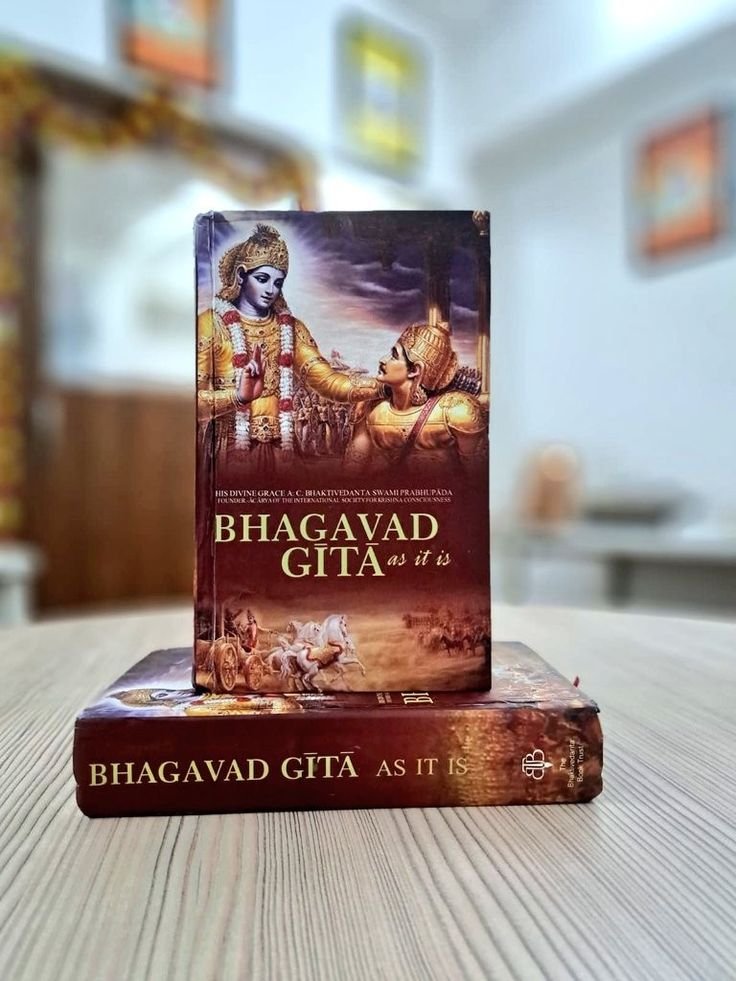
Bhagavad Gita 15.11
यतन्तो योगिनश्चैनं पश्यन्त्यात्मन्यवस्थितम्।यतन्तोऽप्यकृतात्मानो नैनं पश्यन्त्यचेतसः।।15.11।।
yatanto yoginaśh chainaṁ paśhyanty ātmany avasthitam yatanto ‘py akṛitātmāno nainaṁ paśhyanty achetasaḥ
yatantaḥ—striving; yoginaḥ—yogis; cha—too; enam—this (the soul); paśhyanti—see; ātmani—in the body; avasthitam—enshrined; yatantaḥ—strive; api—even though; akṛita-ātmānaḥ—those whose minds are not purified; na—not; enam—this; paśhyanti—cognize; achetasaḥ—unaware
Translation
The yogis striving for perfection behold Him dwelling in the Self; but, the unrefined and unintelligent, even though striving, do not see Him.
Commentary
15.11 यतन्तः striving (for perfection)? योगिनः the Yogins? च and? एनम् this? पश्यन्ति see? आत्मनि in the Self? अवस्थितम् dwelling? यतन्तः striving? अपि also? अकृतात्मानः the unrefined? न not? एनम् this? पश्यन्ति see? अचेतसः unintelligent.Commentary The description of the evolution of the individual soul is now complete.The Yogins who strive with an iron determination? fiery resolve? faith? earnestness and wellbalanced mind? see Him established in their hearts. They behold Him dwelling in their own mind or intellect. They recognise Him — This I am. But those who are of full intellect and without proper discipline of the mind and the senses? who have not been purified by austerity? selfless service and charity? who have not subdued their senses? who have not practised regular meditation? who have not given up their evil ways? who have not eradicated lust? pride? egoism? anger? greed and hypocrisy? who have not developed true discrimination between the Real and the unreal? however hard they may struggle to know Him by means of the study of the sacred scriptures? do not behold Him. They are not able to attain Selfrealisation. Mere study of scriptues alone cannot help one who has an impure mind to attain Selfrealisation.
The aspirant should have a calm and pure mind. He should practise constant? protracted and profound meditation on the Self. Only then will he realise? recognise and behold the Self abiding in his own heart.That Goal (the Supreme Being) which the fire? stars? lightning? sun and moon do not illumine? having reached which the aspirants do not return to this Samsara or the world of birth and death? of which the individual souls are only imaginary parts appearing so on account of the limiting adjunct (ignorance)? just as the ether in the pot appears to be limited though it is one with the,universal ether — is the essence of all worldly experiences.Just as the ether in the pot becomes identical with the universal ether when the limiting adjunct (pot) is broken? so also the individual soul becomes identical with the Supreme Being when the limiting adjunct (ignorance) is destroyed through the knowledge of the Self or Selfrealisation born of meditation on the right significance of the great sentences of the Upanishads? viz.? TatTvamAsi (That thou art) or AhamBrahmaAsmi (I am the Supreme Being). Then he realises that Brahman is the essence of all and tht He is the basis of all experiences.In order to make Arjuna understand this? the Lord gives a brief summary of His manifestations in the following four verses. A description is given here of the allpervasiveness of the Self.
Bhagavad Gita 15.12
यदादित्यगतं तेजो जगद्भासयतेऽखिलम्।यच्चन्द्रमसि यच्चाग्नौ तत्तेजो विद्धि मामकम्।।15.12।।
yad āditya-gataṁ tejo jagad bhāsayate ’khilam yach chandramasi yach chāgnau tat tejo viddhi māmakam
yat—which; āditya-gatam—in the sun; tejaḥ—brilliance; jagat—solar system; bhāsayate—illuminates; akhilam—entire; yat—which; chandramasi—in the moon; yat—which; cha—also; agnau—in the fire; tat—that; tejaḥ—brightness; viddhi—know; māmakam—mine
Translation
That light which resides in the sun, illuminating the whole world; that which is in the moon and in the fire—know that light to be Mine.
Commentary
15.12 यत् which? आदित्यगतम् residing in the sun? तेजः light? जगत् the world? भासयते illumines? अखिलम् whole? यत् which? चन्द्रमसि in the moon? यत् which? च and? अग्नौ in the fire? तत् that? तेजः light? विद्धि know? मामकम् Mine.Commentary The immanence of the Lord as the allilluminating light of consciousness is described in this verse.I am the cause and the source of the light by which the sun illumines the world? as also the reflected light of the sun in the moon and that of fire.Tejah Light The light of consciousness.If that is so? an objector says The light of consciousness exists alike in all moving and unmoving objects. Then why has the Lord mentioned this special alification of light as residing in the sun? moon and fire Please explain. We say The higher manifestation of the light of consciousness in the sun? etc.? is due to a large concentration of Sattva in them. Sattva is very brilliant and luminous in them. That is the reason why there is this special alification.Here is an illustration. The face of a man is not at all reflected on a wall? piece of wood or a block of stone? but the same face is reflected beautifully in a very clean mirror. The degree of clearness of the reflection in the mirror is acording to the degree of transparency of the mirror. The more the transparency of the mirror? the better the reflection of the face the less the transparency? the worse the reflection. Even so Gods light shines in the sun and also in the pure heart of a devotee.
Bhagavad Gita 15.13
गामाविश्य च भूतानि धारयाम्यहमोजसा।पुष्णामि चौषधीः सर्वाः सोमो भूत्वा रसात्मकः।।15.13।।
gām āviśhya cha bhūtāni dhārayāmy aham ojasā puṣhṇāmi chauṣhadhīḥ sarvāḥ somo bhūtvā rasātmakaḥ
gām—earth; āviśhya—permeating; cha—and; bhūtāni—living beings; dhārayāmi—sustain; aham—I; ojasā—energy; puṣhṇāmi—nourish; cha—and; auṣhadhīḥ—plants; sarvāḥ—all; somaḥ—the moon; bhūtvā—becoming; rasa-ātmakaḥ—supplying the juice of life
Translation
Permeating the earth, I support all beings with My energy; and having become the watery moon, I nourish all herbs.
Commentary
15.13 गाम the earth? आविश्य permeating? च and? भूतानि all beings? धारयामि support? अहम् I? ओजसा by (My) energy? पुष्णामि (I) nourish? च and? औषधीः the herbs? सर्वाः all? सोमः moon? भूत्वा having become रसात्मकः watery.Commentary The immanence of the Lord as the allsustaining life is described in this verse.Ojas The energy of the Lord (Isvara). The vast heaven and earth are firmly held by this energy. It permeates the earth to support the world. This energy is destitute of passion and attachment. As the vast earth is supported by the energy of the Lord? it does not fall? it is not broken down to pieces and it does not sink into the nether worlds.The Lord penetrates the earth and supports all movable and immovable objects by His energy.Rasatmakah somah The watery moon The moon is regarded as the repository of all savours or,fluids (Rasas). I? becoming the watery moon? nourish all herbs and plants such as rice? wheat? etc.? by infusing sap into them? and make them savoury. I feed the vegetable kingdom with My vital juice (Ojas) which pervades the soil and generates sweet juice or sap in herbs? plants and trees. The watery or savoury moon nourishes all herbs and plants by infusing sap or savours into them.Moreover —
Bhagavad Gita 15.14
अहं वैश्वानरो भूत्वा प्राणिनां देहमाश्रितः।प्राणापानसमायुक्तः पचाम्यन्नं चतुर्विधम्।।15.14।।
ahaṁ vaiśhvānaro bhūtvā prāṇināṁ deham āśhritaḥ prāṇāpāna-samāyuktaḥ pachāmy annaṁ chatur-vidham
aham—I; vaiśhvānaraḥ—fire of digestion; bhūtvā—becoming; prāṇinām—of all living beings; deham—the body; āśhritaḥ—situated; prāṇa-apāna—outgoing and incoming breath; samāyuktaḥ—keeping in balance; pachāmi—I digest; annam—foods; chatuḥ-vidham—the four kinds
Translation
Having become the fire Vaisvanara, I abide in the bodies of living beings and, associated with the Prana and the Apana, digest the fourfold food.
Commentary
15.14 अहम् I? वैश्वानरः (the fire) Vaisvanara? भूत्वा having become? प्राणिनाम् of living beings? देहम् the body? आश्रितः abiding? प्राणापानसमायुक्तः associated with Prana and Apana? पचामि (I) digest? अन्नम् food? चतुर्विधम् fourfold.Commentary The immanence of the Lord as the gastric fire in all living beings is described in this verse.Vaisvanara The fire that abides in the stomach. This fire is fanned by the bellows of the incoming and the outgoing breaths continuously and large antities of food are digested. Inside the wonderful laboratory of the stomach I digest the food by taking the form of this gastric fire.Four kinds of food (1) Food which has to be eaten by mastication (Bhakshyam). (2) That which has to be sucked in (Bhojyam). (3) That which has to be licked (Lehyam). (4) That which has to be devoured or swallowed (Choshyam). Another classification is as follows (1) Rice is PrithiviAnnam (solid food) for human beings. (2) Water is Apyannam (watery food) for birds like the Chataka. (3) Fire is Tejasannam (hot food) for certain creatures. (4) Air is Vayvannam (air as food) for serpents.अयमग्निर्वैश्वानरो योऽयमन्तः पुरुषः येनेदमन्नं पच्यते।।This fire which is within man and by which the food is digested is Vaisvanara. (Brihadaranyaka Upanishad 5.9.1)He who thinks or meditates and feels that the Vaisvanara fire is the eater? that the food eaten by the fire is the Soma (moon) and that the two together form AgniSoma is not contaminated by the impurities in the food. He who meditates before he takes his food that the whole world which is in the form of eater and eaten is made up of Agni and Soma? is not tainted by the evil arising from eating bad food.Repeat this verse daily before you take your food. You will be free from all taints of impurity in food.

Bhagavad Gita 15.15
सर्वस्य चाहं हृदि सन्निविष्टो मत्तः स्मृतिर्ज्ञानमपोहनं च।वेदैश्च सर्वैरहमेव वेद्यो वेदान्तकृद्वेदविदेव चाहम्।।15.15।।
sarvasya chāhaṁ hṛidi sanniviṣhṭo mattaḥ smṛitir jñānam apohanaṁ cha vedaiśh cha sarvair aham eva vedyo vedānta-kṛid veda-vid eva chāham
sarvasya—of all living beings; cha—and; aham—I; hṛidi—in the hearts; sanniviṣhṭaḥ—seated; mattaḥ—from me; smṛitiḥ—memory; jñānam—knowledge; apohanam—forgetfulness; cha—as well as; vedaiḥ—by the Vedas; cha—and; sarvaiḥ—all; aham—I; eva—alone; vedyaḥ—to be known; vedānta-kṛit—the author of the Vedānt; veda-vit—the knower of the meaning of the Vedas; eva—alone; cha—and; aham—I
Translation
And I am seated in the hearts of all; from Me come memory and knowledge, as well as their absence. I am verily That which has to be known by all the Vedas; I am indeed the author of the Vedanta and the knower of the Vedas.
Commentary
15.15 सर्वस्य of all? च and? अहम् I? हृदि in the heart? सन्निविष्टः seated? मत्तः from Me? स्मृतिः memory? ज्ञानम् knowledge? अपोहनम् (their) absence? च and? वेदैः by the Vedas? च and? सर्वैः (by) all? अहम् I? एव even? वेद्यः to be known? वेदान्तकृत् the author of the Vedanta? वेदवित् the knower of Vedas? एव even? च and? अहम् I.Commentary I am seated in the hearts of all sentient beings as their innermost Self. Therefore from Me? the Self of all beings? are memory? knowledge and their loss. Righteous persons have knowledge and memory as a result of virtuous deeds. Sinful persons have loss of memory and knowledge as a result of vicious deeds. Virtue promotes peace and hence intellectual powers.Apohanam Loss (destruction or absence) of memory and knowledge? as also of the reasoning faculty. The loss of memory and knowledge is due to lust? anger? grief and delusion.Smriti Memory. It is a special modification of the mind (Antahkarana Vritti) born of the Samskaras that causes the revival of the past experiences or enjoyments of sensual objects of this life in a worldy man who has not practised Yoga. A Yogi gets revival of experiences of his past lives and transcendental knowledge that is beyond time? space and causation and visible nature.I am the central topic of the Vedas. To understand the Vedas is to Know Me. I? the Supreme Being? am to be known in all the Vedas. It is I Who know the Vedic teaching or the meaning of the Vedas. I cause the teaching of the Vedanta to be handed down in regular succession. I am the author of what is beyond the Vedas? viz.? the Upanishads that constitute the Vedanta? that deal with the transcendental Supreme Being beyond all names and forms and devoid of all alities.A brief description of the glories of the Lord Narayana as manifested through special vehicles has been given in the above four verses. From the next verse a description of the form of Purushottama Who is free from any limiting adjunct is given. (Cf.X.20)
Bhagavad Gita 15.16
द्वाविमौ पुरुषौ लोके क्षरश्चाक्षर एव च।क्षरः सर्वाणि भूतानि कूटस्थोऽक्षर उच्यते।।15.16।।
dvāv imau puruṣhau loke kṣharaśh chākṣhara eva cha kṣharaḥ sarvāṇi bhūtāni kūṭa-stho ’kṣhara uchyate
dvau—two; imau—these; puruṣhau—beings; loke—in creation; kṣharaḥ—the perishable; cha—and; akṣharaḥ—the imperishable; eva—even; cha—and; kṣharaḥ—the perishable; sarvāṇi—all; bhūtāni—beings; kūṭa-sthaḥ—the liberated; akṣharaḥ—the imperishable; uchyate—is said
Translation
Two Purushas there are in this world: the perishable and the imperishable. All beings are perishable, and the Kutastha—the unchanging—is called the imperishable.
Commentary
15.16 द्वौ two? इमौ these? पुरुषौ Purushas (beings)? लोके in the world? क्षरः the perishable? च and? अक्षरः the imperishable? एव even? च and? क्षरः the perishable? सर्वाणि all? भूतानि beings? कूटस्थः the immutable (unchanging)? अक्षरः the imperishable? उच्यते is called.Commentary Now the Lord describes the three aspects of the divine existence. One is the individual soul called the perishable? the second is the imperishable or the Maya Sakti of the Lord and the third is the Purushottama or the Supreme Being.The perishable comprises the whole world of changing forms. From Brahma down to the tiny blade of grass? all movable and immovable objects? all that can be thought of by the mind? all that is made up of the five elements? all that is changing? all that has names and forms? all that appearsto the naked eye and what is described as the body and the modifications of the field? in the thirteenth chapter? are Kshara or the perishable. Kshara is the changing one. It is the everchanging form of matter which is inert or insentient. Akshara is the changeless.In Samsara there are two categories arranged in two separate groups of beings? called Purushas? as they are the limiting adjuncts of the state.
Purusha. Maya Sakti? the illusory power of the Lord? is the seed from which the perishable being takes its birth. It is the seat of all the latent impressions of desires? actions? etc.? of various perishable creatures. Maya Sakti is the Akshara Purusha. The unmanifest condition is generally described as deep ignorance or sleep for there is neither consciousness nor unconsciousness. It is only a potenti It is the condition in which all forms of life with its accompanying limitations lie latent? just as the tree lies latent in the seed of the fruit. In this state matter and energy are one. In this state sound? matter and energy exist in an undifferentiated state. In this state the Gunas exist in a state of eilibrium.The imperishable is known as the Kutastha? i.e.? that which remains immovable like a heap. That which is at the root (Kuta) of all these beings is the Kutastha. Or? Kuta also means illusion? and Kutastha means that which manifests itself in diverse forms of illusion. That which conceals the Truth and shows the false thing and deceives the worldyminded people is Maya or Kuta. That which is of the form of the AvaranaVikshepa Sakti (veiling and vacillating power) is Kutastha.
As this Maya Sakti cannot be destroyed except by the knowledge of the Self? it is said to be endless. That is the reason why this is called Akshara. That seed of Samsara has no end. Therefore? it is said to be imperishable in the sense that it is not destroyed in the absence of knowledge of the Self. But the seed is scorched or destroyed in toto when one gets the knowledge of Brahman. The,illusion vanishes and everything is realised as the one Cosmic Consciousness. Only the illusory perception of matter is destroyed.Purushottama or the highest Purusha is distinct from these two — the perishable and the imperishable. He is not affected by the evils of the two vehicles or limiting adjuncts of the perishable and the imperishable. He is eternal? pure? intelligent and free by nature.
Bhagavad Gita 15.17
उत्तमः पुरुषस्त्वन्यः परमात्मेत्युदाहृतः।यो लोकत्रयमाविश्य बिभर्त्यव्यय ईश्वरः।।15.17।।
uttamaḥ puruṣhas tv anyaḥ paramātmety udāhṛitaḥ yo loka-trayam āviśhya bibharty avyaya īśhvaraḥ
uttamaḥ—the Supreme; puruṣhaḥ—Divine Personality; tu—but; anyaḥ—besides; parama-ātmā—the Supreme Soul; iti—thus; udāhṛitaḥ—is said; yaḥ—who; loka trayam—the three worlds; āviśhya—enters; bibharti—supports; avyayaḥ—indestructible; īśhvaraḥ—the controller
Translation
But distinct is the Supreme Purusha, called the highest Self, indestructible and Lord, who pervades the three worlds and sustains them.
Commentary
15.17 उत्तमः the Supreme? पुरुषः Purusha? तु but? अन्यः another? परमात्मा the highest? Self? इति thus? उदाहृतः called? यः who? लोकत्रयम् the three worlds? आविश्य pervading? बिभर्ति sustains? अव्ययः the indestructible? ईश्वरः Lord.Commentary Purushottama is beyond the universe though He pervades the three worlds. Therefore He is called the Supreme Being by the Vedas and men of this world. He pervades the three worlds and upholds them yet? He is not tainted by the world. He is above the world or worldliness.Just as the waking state is different from the dram or the deep sleep states? just as the orb of the sun is different from his rays or the mirage they casue? so also is the highest Purusha different from the perishable and the imperishable Purushas.The highest Purusha is the haven of peace.
In Him all take their refuge and eternal rest. He is incomparable for He is selfcontained there is nothing like Him. He can only be compared to Himself. The imperishable Being (Akshara Brahman) Who is beyond the world and the Avyaktam (the Unmanifested) are essentially the same as the Purushottama Who transcends both the Kshara and the Akshara.The Purushottama is ite distinct from the two — Kshara and Akshara. He is the Supreme Being. The physical body? the astral body and the causal body are also termed the Self. But these are secondary selves. Paramatma or the Supreme Self is the primary Self. Purushottama or Paramatma is the supreme or the highest when compared with the other secondary selves created by ignorance. He is the innermost consciousness of all beings.
He is the Niyanta? the Inner Ruler. He is independent. Therefore He is known as the Supreme Self in the Vedanta.Anyah Another? ite distinct from the two.Lokatrayam The three worlds Bhuh (the earth)? Bhuvah (the midregion) and Svah (heaven) are the three worlds.Purushottama is further described as follows He is the imperishable and omniscient Lord Narayana Who permeates the three worlds by His vital energy and sustains them by His mere existence in them.Avyaya Imperishable? that which is free from the modifications such as birth? death? etc. Just as the king who rules his subjects and controls them is distinct from them? so also the Supreme Being Who is the ruler of the perishable and the imperishable is distinct from them. (Cf.VIII.20)
Bhagavad Gita 15.18
यस्मात्क्षरमतीतोऽहमक्षरादपि चोत्तमः।अतोऽस्मि लोके वेदे च प्रथितः पुरुषोत्तमः।।15.18।।
yasmāt kṣharam atīto ’ham akṣharād api chottamaḥ ato ’smi loke vede cha prathitaḥ puruṣhottamaḥ
yasmāt—hence; kṣharam—to the perishable; atītaḥ—transcendental; aham—I; akṣharāt—to the imperishable; api—even; cha—and; uttamaḥ—transcendental; ataḥ—therefore; asmi—I am; loke—in the world; vede—in the Vedas; cha—and; prathitaḥ—celebrated; puruṣha-uttamaḥ—as the Supreme Divine Personality
Translation
As I transcend the perishable and am even higher than the imperishable, I am declared to be the highest Purusha in the world and in the Vedas.
Commentary
15.18 यस्मात् as? क्षरम् the perishable? अतीतः transcend? अहम् I? अक्षरात् than the imperishable? अपि also? च and? उत्तमः best? अतः therefore? अस्मि (I) am? लोके in the world? वेदे in the Vedas? च and? प्रथितः declared? पुरुषोत्तमः the Highest Purusha.Commentary Purushottama is a wellknown name of the Lord. The name is ite appropriate as He is the supreme Purusha.Kshara The perishable — the tree of Samsara.Akshara The imperishable — the seed of the tree of Samsara.Because I excel the perishable (the tree of illusory Samsara) and am more excellent also than the imperishable (the seed of the tree of the illusory Samsara) and because I am thus superior to the perishable and the imperishable? I am proclaimed in the world and in the Vedas as the highest Purusha. Devotees know Me as such. Poets also describe Me as such.I am beyond all limitations. There is no trace of dualism in Me. Therefore? I am called by all and by the scriptures the highest Purusha.
Bhagavad Gita 15.19
यो मामेवमसम्मूढो जानाति पुरुषोत्तमम्।स सर्वविद्भजति मां सर्वभावेन भारत।।15.19।।
yo mām evam asammūḍho jānāti puruṣhottamam sa sarva-vid bhajati māṁ sarva-bhāvena bhārata
yaḥ—who; mām—me; evam—thus; asammūḍhaḥ—without a doubt; jānāti—know; puruṣha-uttamam—the Supreme Divine Personality; saḥ—they; sarva-vit—those with complete knowledge; bhajati—worship; mām—me; sarva-bhāvena—with one’s whole being; bhārata—Arjun, the son of Bharat
Translation
He who, undeluded, knows Me as the highest Purusha, he, knowing all, worships Me with his whole being (heart), O Arjuna.
Commentary
15.19 यः who? माम् Me? एवम् thus? असम्मूढः undeluded? जानाति knows? पुरुषोत्तमम् the Supreme Purusha? सः he? सर्ववित् allknowing? भजति worships? माम् Me? सर्वभावेन with his whole being (heart)? भारत O Bharata.Commentary The glory of the knowledge of the Self is described in this verse.Asammudhah Undeluded? free from delusion. The undeluded does not identify himself with the physical body. He never looks upon the physical body? the lifeforce? senses? mind? intellect and the causal body as the Self or as belonging to himself? because he is resting in his own essential nature as ExistenceKnowledgeBliss Absolute and because he identifies himself with Brahman or the Supreme Being.That aspirant who knows that Sri Krishna is not a human being and that He is the highest Purusha or the Supreme Being is undeluded. Such an aspirant or devotee alone worships Him with his whole being. He is the Sarvavit or Sarvajna? allknower. He knows and realises that Lord Krishna? the supreme Lord? is the Inner Self of all beings. He beholds the One in the many? and the many in the One. For him there is neither high nor low? neither pleasure nor pain? neither virtue nor vice? neither good nor evil? neither likes nor dislikes.Me The Lord as specified above.Sarvavit One who knows everything in detail.Knows that I am He.Sarvabhavena With all his heart? with his whole being? wholeheartedly with his whole thought devoted exclusively to the Self of all with his whole mind centred on the Supreme Self alone.
Bhagavad Gita 15.20
इति गुह्यतमं शास्त्रमिदमुक्तं मयाऽनघ।एतद्बुद्ध्वा बुद्धिमान्स्यात्कृतकृत्यश्च भारत।।15.20।।
iti guhyatamaṁ śhāstram idam uktaṁ mayānagha etad buddhvā buddhimān syāt kṛita-kṛityaśh cha bhārata
iti—these; guhya-tamam—most secret; śhāstram—Vedic scriptures; idam—this; uktam—spoken; mayā—by me; anagha—Arjun, the sinless one; etat—this; buddhvā—understanding; buddhi-mān—enlightened; syāt—one becomes; kṛita-kṛityaḥ—who fulfills all that is to be accomplished; cha—and; bhārata—Arjun, the son of Bharat
Translation
Thus, I have imparted to you this most secret science, O sinless one; by knowing this, one becomes wise, and all their duties are accomplished, O Arjuna.
Commentary
15.20 इति thus? गुह्यतमम् most secret? शास्त्रम् science (teaching)? इदम् this? उक्तम् has been taught? मया by Me? अनघ O sinless one? एतत् बुद्ध्वा knowing this? बुद्धिमान् wise? स्यात् will become? कृतकृत्यः (who has) accomplished all the duties? च and? भारत O Bharata. Commentary Guhyatamam Most profound secret. Buddhiman means here a knower of the Self or Atmart. The knowledge of the Self which gives emancipation from the round of birth and death? and freedom from the bonds of Karma is eulogised in this verse. If this most profound teaching is rightly understood? known or realised? it makes a man wise and gives him illumination. After this there is nothing left for him to know or strive for. He has reached the goal of life or the aim of human existence. He has arrived at the end of his journey.
His endeavour for Selfrealisation is over. He has attained perfection. He has complete knowledge of the Supreme Being. He gets Brahma Jnana. He moves in the consciousness of the Divine. He beholds the Self everywhere. He lives in Brahman. He regards all activities as His divine play.When one realises Brahman? he has discharged all the duties of life. He is liberated from the bonds of Karma.
He becomes a Jivanmukta or illumined sage who has transcended the bodyconsciousness? the three alities of Nature? the three states of consciousness (wakeful state? dream and deep sleep)? the pairs of opposites and the cycle of birth and death. He knows fully well that rirth has been destroyed? that what has to be done has been accomplished? that lifes highest goal has been reached and that he has nothing more to do or to learn. He has understood the profound mystery of life — the riddle of this universe. He is a Sarvavit or allknower.The whole of the Gita is called science? yet the fifteenth discourse alone is here declared as the science for the sake of eulogising it. The fifteenth discourse contains the intessence of the Gita? the Upanishads and the Vedas. This is the butter churned from the milk of the Vedas. It has been said that? He who knows the peepul tree knows the Veda (XV.1). The Lord has also said? It is I Who am to be known by all the Vedas (XV.15). Only when a man knows this science as taught above does he become wise — but not otherwise. Whatever duty a Brahmana of the highest birth has to do? all that has been doen when one attains the knowledge of the Self. All actions in their entirety culminate in knowledge (IV.33). This is the fulfilment of the birth? particularly of a Brahmana because the twicorn accomplishes all his duties only by attaining to this? but not otherwise? says Manu Smriti.As you have heard from Me this truth about the Supreme Being? you are a happy man and you have done all your duties you have attained Selfrealistion.By using the words Anagha and Bharata?
Lord Krishna hints that even when an ordinary man who knows this fifteenth discourse can attain knowledge of the Self and become a Kritakritya? then what to say of Arjuna who was sinless and who was born in a noble family with divine attributes The Lord? by using the word Anagha? also indicates that the Guru who is a knower of Brahman should instruct the most profound secret (the science of the Self) only to alified persons who are free from impurities of the heart or tossing of the mind? who are calm and endowed with the four means of salvation. The man of impure mind will not be able to grasp the truth. The sinful man with his perverted intellect will distort the truth and thus pave the way for the destruction of himself and his followers.Thus in the Upanishads of the glorious Bhagavad Gita? the science of the Eternal? the scripture of Yoga? the dialogue between Sri Krishna and Arjuna? ends the fifteenth discourse entitledThe Yoga of the Supreme Spirit. ,,


